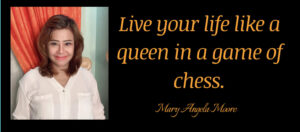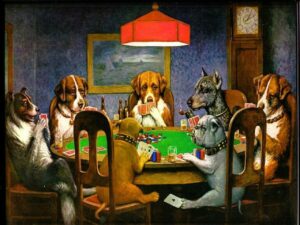
In conclusion, influence is simply the effective combination of communicator, message, and audience.
Communicator—–Message——Audience
The right chemistry among the three elements will decide the overall effectiveness of an attempt to influence. The audience (collaborators, stakeholders, employees, parishioners, followers) will determine whether or not you can influence them or not.
A powerful communicator with a relevant and unique message using the right words wins over most audiences.
To Influence Others, you start with an effective groundwork:
- Network with Like-minded People ONLY
Connecting with like-minded people who share your goals, interests, passion and forging satisfying relationships with them is your first step. Having like-minded people with proper credentials who believe in your vision and mission gives you instant winning points rather than connecting with people whose principles are opposed to yours. A second reason to network and build relationships is that people are always ready and willing to spend time reading or listening to and help a friend or an ally. Investing your time with the right people, building relationships with them will make it easy for you to influence people.
If you want to influence but you are connecting with the wrong people, you may be out of even good results. You may not even be able to spark an iota of interest in the wrong connections.
Remember that people would like to hear only what they want to hear. Therefore, connecting with like-minded people, kindred spirits makes it easy for you to influence them.
Credibility Counts
What gives someone credibility?
The following characteristics help:
- Expertise: know now what you’re talking about
- Status quo: Having high status in the community
- Trustworthiness: Being trusted by the audience
- Likability: Being liked by the audience
Trustworthiness
Basically, trustworthiness is the ability to be relied on as honest or truthful. However, in influencing your stakeholders, collaborators, employees, parishioners, and the like, a lot more requirements are needed to make you trustworthy. First, you must have a track record of success, credentials, and affiliations. Second, people trust you more if you listen and care about them. Influencing others is more of a listening task than an action task. When you give value to others, they will view you as trustworthy.
Don’t Speak, Communicate
Talking is the result of opening our mouths, producing sounds, and letting words flow without being mindful of sophistication, ethics, strategies, contents, charm, and the like . Communication is the art and science of speaking. Communication, if properly harnessed is one powerful tool in influencing others. Careful planning and ample preparation before standing infront of an audience yield positive results.
Give allowance for a “buy-in” Period
The world’s premier leadership guru, John C. Maxwell writes, “Every message that people receive is filtered through the messenger who delivers it. If you consider the messenger to be credible, then you believe the message has value.” This is why celebrity endorsements are so successful—if people trust the celebrity, they’ll buy what they are selling.
This idea applies to your business, too. If people trust you, they will follow you no matter where you lead. If they don’t buy into you as a leader, though, they will be reluctant to buy into your vision even if it’s aligned with their ideals.
Maxwell puts it this way: if people buy into both the leader and the vision, they’ll get behind the leader. When they buy into the leader but not the vision, you’ll need a new vision, but it’s not the end of the world.
When followers don’t like the leader and can’t get on board with the vision, however, people feel that it’s time to get another leader. You don’t want this to happen to you.
Use The Bandwagon Effect
The Bandwagon Effect is the tendency for one or a group of individuals to conclude that someone or something is desirable because a lot of people like it. The Bandwagon Effect in simple terms is the tendency to follow trends and fads. This occurs because most people have the unconscious desire to conform to peers, communities, families, or famous people.
Give Something Away
Across cultures, giving back is a common practice. That is, if you give something to them, they will reciprocate in a way that makes you happy. Everyone loves gifts. That is why gifts are often used to court women, clients, and people we need to seek favor from.
Always Ask People Questions That Are Answerable by YES, not NO
Example:
TBC-InTV: You must be sick and tired of fake news. 100% answer, YES
Prospects: Yes
TBC-InTV: That is why you are confused as to what to believe in. Right?
Prospects: Yes
TBC-InTV: CellPhone Journalism is a new approach to redefine broadcasting. This will eradicate fake news in the long run. The news will not be editorialized, no cuts allowed, no edits, and news are served raw. Would you like to listen more about this game-changer?
Prospect: Yes
TBC-InTV: You are surely qualified to be a part of us. You see, we welcome anyone who is pretty much as you: technology-savvy, sincere, professional, industrious, and loyal to his/her cause. We have FREE training webinars for like-minded people every week. I am sure you are free on weekends.
Prospect: Yes, I am.
TBC-InTV: In a span of two months, we were able to certify high-quality people like you, and now, they are starting to produce ideal videos. Do you want to see some on Youtube, Linkedin, or Facebook?
Prospect: Sure!
TBC-InTV: You see? As simple as that! Just use your cellphone, and you can already produce content worthwhile watching.
Prospect: For sure, yes!
TBC-InTV: To top it off, we have a way of monetizing it without sacrificing our integrity.
Prospect: That sounds attractive.
TBC-InTV: Indeed, it is. Are you free on Saturdays? The training runs for 6 Saturdays, one hour per session.
Prospect: Sure, I am. Count me in.
Make people comfortable
By being warm and friendly, people are much more likely to listen to your point of view. You can start with:
- Appreciation: People would like to be appreciated. However, don’t overdo it. Most people dislike fawning.
- Empathy: Always put your feet in other people’s shoes. This way, you make it easy for you to persuade them.
- Call people by name, not titles: Names are the sweetest words people can hear.







